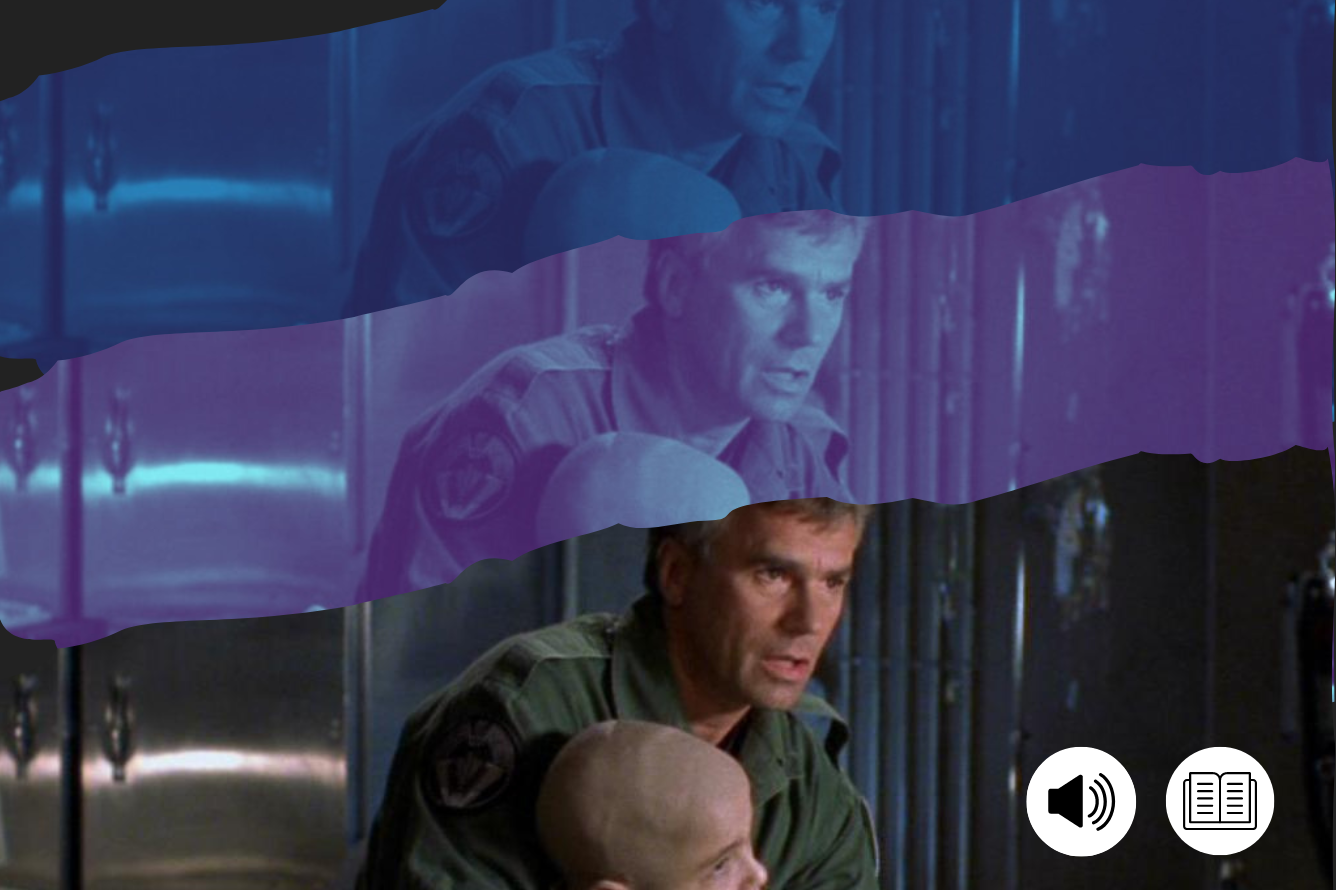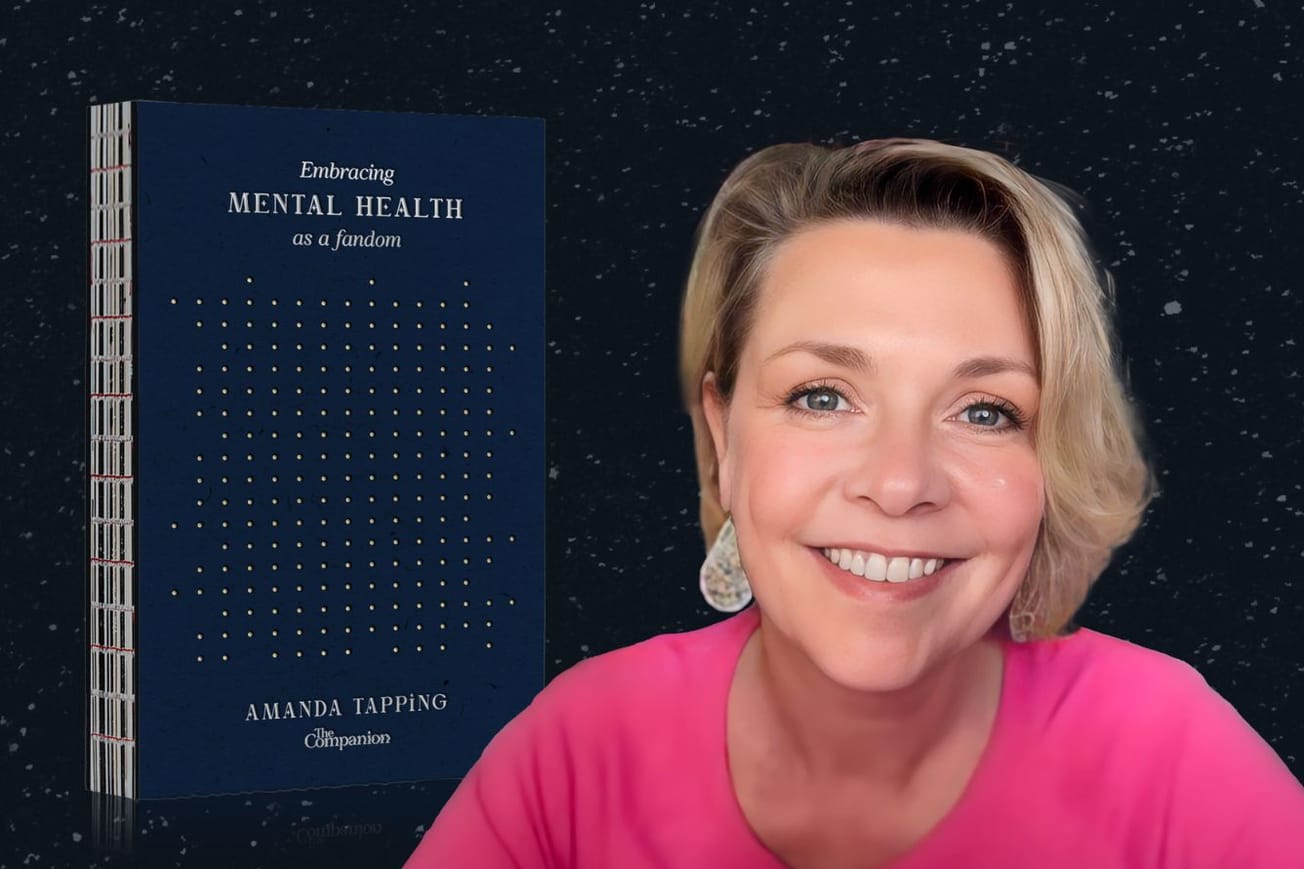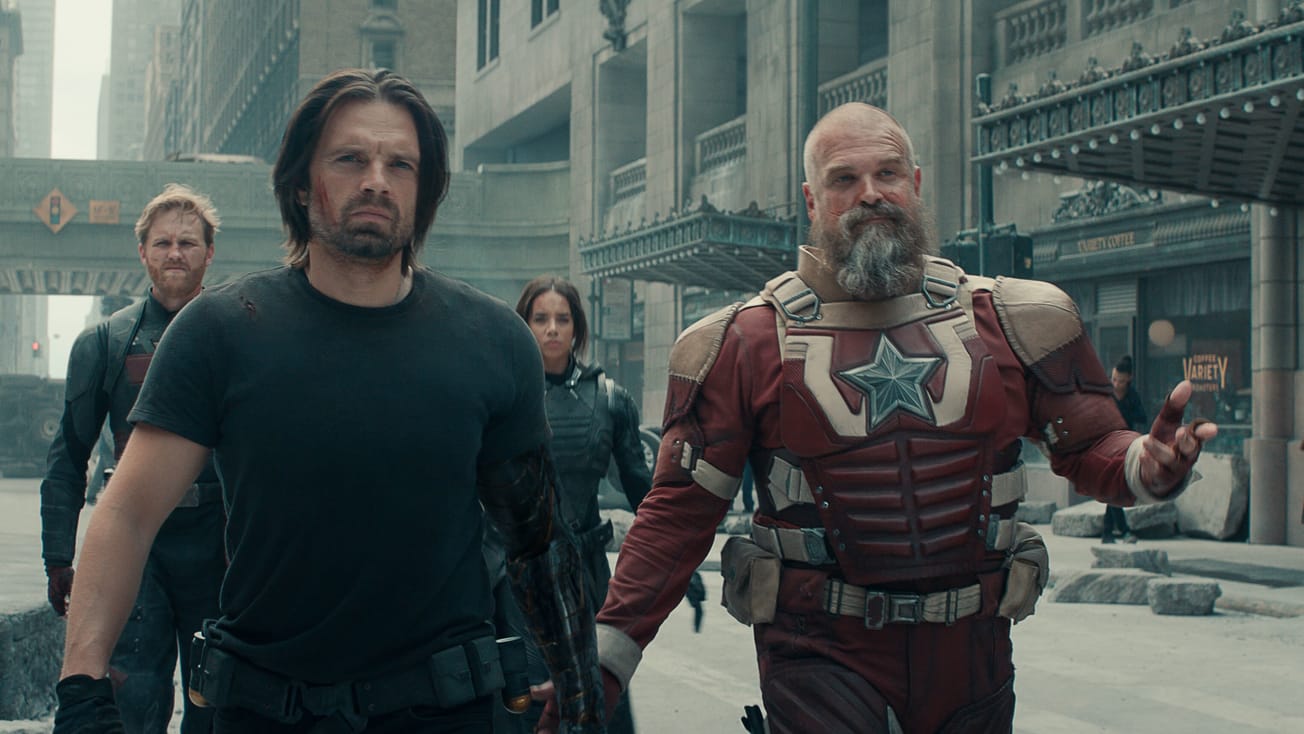You can also listen to Jack O’Neill’s Lesson on Living with Loss on Apple Podcasts, Google Podcasts, Spotify, or RSS Feed.
For those who only know of Stargate from the periphery or have only seen the feature film, Stargate SG-1 may appear to be a simpler sci-fi action/adventure; an entertaining militaristic story exploring new worlds mixed with ancient Egyptian mythology, but ultimately a cable spin-off. However, for those who decided to make the leap and go on the show’s ten-year journey, SG-1 means something much more.
On the surface, SG-1 is about our four explorers charting the vast network of stars, but at its core are the human relationships each hero needs to work through. At this center is lead character Jack O’Neill and how he deals with the death of his son.
Throughout the 214 episodes of the show, our heroes travel the galaxy with the purpose of procuring knowledge and advanced technologies. Oftentimes, they find themselves in different timelines and realities and meet alternate versions of themselves therein. In some, Samantha Carter joined NASA instead of the USAF, Daniel Jackson lives quietly in Egypt, and Teal’c is not an alien but a fireman, but across the multiverse, the one constant is that Jack O’Neill’s son, Charlie, has died. This never changes.
This is why SG-1 connects. For anyone who’s ever lost a loved one, the struggle isn’t just about their death, it’s the journey we have to endure afterwards.
When I first returned home following the death of my Father, himself a Stargate fan and with whom I shared so much of this franchise, I found that the house was cold. It was the evening, the heating was off, and we were into Autumn, but it was more than that. In the days that followed, I found myself surrounded by the lack of him. The absence had a weight.
When we’re introduced to Jack in the 1994 film, portrayed by Kurt Russell, his son’s death has left him a broken man. In his very first scene, he sits among that same weighted absence that I was so familiar with, alone in Charlie’s bedroom, cradling the weapon with which the boy accidentally shot himself.
The loss of his son leaves him with thoughts only of suicide and, aware of his situation, the US government assigns Jack a mission of the same kind, to end his career and life by serving his country one last time.

On what was meant to be a one-way trip through the Stargate to the alien planet of Abydos, Jack’s outlook changes after he sees the wonders of the universe, befriends the natives, and aids in an uprising, realizing that his death helps no one while his life could.
The film doesn’t spend much time analyzing or exploring this, it is an action/adventure film from the 90s after all, but by the end, we’re given the sense that he’s dealt with what’s happened in some way.
Jack: Are you going to be all right?
Daniel: I’m going to be all right. How about you?
Jack: Yeah…Yeah, I think so.
As a final line, it’s a hopeful notion to end on, but in terms of a resolution to Jack’s arc, it’s unearned. The realities of living with grief are surely just beyond that event horizon but, mercifully for Jack, the closing credits come. A luxury those of us in real life aren’t afforded.
Thankfully for the development of his character, and us, real life was soon to catch up, and his story was just beginning.
For this continued journey, Jack O’Neill was recast with Richard Dean Anderson who was allowed by MGM President John Symes to “do what he wants with the character.” Richard Dean Anderson elected to bring a sense of humor to the role, not thinking he could play the same version of the character that Russell did. This added not just longevity to the part, but it made Jack O’Neill a more complete character.
Comedy and tragedy are two elements so intrinsically combined in all of us, with the former especially prominent during difficult times. Humor is a shield we often use, to spare others from having to think about how we must really be feeling, and it spares us from having to accept it ourselves. By adding levity to a character with a tragic past, it made Jack real.

When we return to Jack O’Neill, in the Stargate SG-1 pilot episode ‘Children of the Gods’ (S1, Ep1), Stargate Command archaeologist Daniel Jackson (Michael Shanks) asks when he’ll get to meet Jack’s wife Sara, and we learn the pair are estranged. Jack explains, “I think that in her heart, she forgave me for what happened to our kid. She just couldn’t forget,” only to be asked by Daniel, “And what about you?”
I’m the opposite. I’ll never forgive myself but…sometimes I can forget. Sometimes.
It becomes clear that, despite his newfound purpose as leader of SG-1, this is an O’Neill still firmly living in the aftermath of his son’s passing.
In the Stargate SG-1 episode ‘Cold Lazarus’ (S1, Ep7), while on an alien planet, Jack is duplicated by a crystalline species who returns to Earth in his place, desperately seeking Sara and Charlie.
What follows is the heaviest deconstruction of Jack’s familial life that we get on the show. In duplicating Jack, the alien also duplicates his sense of loss and attempts to “fix” this. Through its interactions with Sara (Harley Jane Kozak), her father, and then in confronting that same empty bedroom we first met the real O’Neill in, it cries.
The alien duplicate learns what loss means to us, and its effect, and to understand and move on from it, we need to look not only within but outward, seeking and sharing with those who have suffered alongside us.
The episode ends with the crystalline entity, now in the form of Charlie O’Neill (Kyle Graham), being led back through the Stargate. A metaphor for the weight that Jack has been carrying, finally being carried forward.
A death as significant as a son’s, particularly if you hold yourself responsible, is not one that you ever really get over – least of all because of a single experience. Grief doesn’t work that way; it’s an uneven road that often winds back on itself.
This happens unexpectedly in ‘Show and Tell’ (S2, Ep20), one of the most moving episodes of the series’ run.
A young boy (Jeff Gulka), genetically engineered as a messenger to humans, arrives at Stargate Command with a warning for O’Neill. He tells of an impending invasion by an invisible species known as the Reetou. The boy’s “Mother,” also an alien, has been watching Jack for some time and deems him trustworthy to receive this message and her “Son.”
The pair connect right away, and we see Jack’s paternal nature, however difficult for him, emerge. In one scene, Jack asks the child’s name and learns that he has none. The boy knows from “Mother” that Jack has a son and asks his name. O’Neill, not expecting this, tells him that his son is no longer with them, but his name was Charlie.
The alien boy likes this name and asks whether he too could be Charlie. Jack appears uncertain initially, but looking down at this fatherless boy, he softens and allows it.
Due to the manner of his creation, “Charlie’s” body is failing. As the episode continues and his terminal illness accelerates he makes another request of O’Neill. He asks to be his son, if only for a little while. Jack tries to dismiss this, intimating that “Charlie” wouldn’t want him as a father, his feelings of failure the last time surely influencing this, but the boy persists, believing O’Neill would make a good one.
This is the moment: 26 minutes and 16 seconds into Episode 20 of Season 2….

This is where the question is posed and the plaster is torn off.
This is where Jack decides to use his past pain in a way that builds a future. He can’t bring himself to say it, not yet, but every action he takes in the show from then on is because of this question. From here, he starts to become a kind of Father again, fuelled by the memory of one son and the plea of another.
This comes to the forefront in the Stargate SG-1 episode ‘Learning Curve’ (S3, Ep5). SG-1 encounters a planet of advanced children whose rapid intelligence and learning are the result of nanites. One child, Merrin (Brittney Irvin), is brought to the SGC to help improve Earth’s technology, the entire purpose of the Stargate program.
Until now, Jack has always been a man of duty, someone for whom the mission comes first. Even when others protest, Daniel Jackson for reasons of cultural preservation, Teal’c (Christopher Judge) for honor, and Samantha Carter (Amanda Tapping) for scientific pursuit, Jack’s focus is his duty.
When they learn that once these children have amassed as much knowledge as they can retain, their nanites are removed and dispersed among the rest of the adult population, leaving the children empty and outcast, Jack decides to act.
Against the wishes of his superior officers, Jack breaks protocol to take Merrin off base to show her what life as a child should be, to show her the joys of childhood.

Upon returning, General Hammond (Don S. Davis) threatens O’Neill with court-martial. Jack welcomes worse, ready for any punishment conceivable on this Earth or any they’ve traveled, believing firmly that Merrin deserved the chance to be a child. He puts duty to the SGC aside in favor of his duty as a father, providing Merrin with what his child lost.
After this point, that which was unspoken in ‘Show and Tell’ is now proclaimed with conviction, and he is poised to come full circle, which he does in fan-favorite episode ‘Window of Opportunity’ (S4, Ep20).
Often considered the best of the series, the episode has O’Neill trapped in a Groundhog Day (1993) time loop with increasingly absurd results. He plays golf through the Stargate, rides a bicycle through the underground bunker, and learns how to mold clay pots.
It also sees Jack in a position to help someone stuck in a place he too has been. The temporal anomaly that O’Neill finds himself in is the cause of a scientist named Malakai (Robin Mossley) who, mourning the loss of his wife, is experimenting with Ancient technology in the hopes of seeing her again.
It’s quite fitting that the most farcical episode of the show is also an episode rooted in grief and growth. In many ways, ‘Window of Opportunity’ is Stargate SG-1, and O’Neill personified, with the resolution to the episode not being through a physical altercation or any scientific means but in a conversation. Jack breaks free from the prison of his time loop by helping someone break free from the prison of their obsession and grief.
Jack: Listen to me. I know what it’s like.
Malakai: You can’t!
Jack: I lost my son! I know! And as much as I wish…I could never live that over again. Could you?
Malakai: No.
Jack: Let her go.
Jack is now a father and teacher, knowing enough about his own loss that he can pay it forward. Even though Charlie’s death remains a universal constant and always a part of Jack, it is not the whole of him. His grief isn’t who he is.
You need only look to years later, during the seventh season episode ‘Fallen’ (S7, Ep1) when Daniel Jackson who is slowly regaining his memories notices a photograph of Charlie in O’Neill’s locker and recognizes it. He remembers that’s how he knows Jack, because he took that original mission to Abydos, to commit suicide, and yet, Jack doesn’t seem like a broken man.
Jack responds to his old friend:
Things change.
Seeing this change in O’Neill across Stargate SG-1 gives me a comforting familiarity and connects us further. This is an O’Neill who had suffered the same as the film version, only now the credits waiting for him weren’t closing ones, but the opening titles to a show where he deals with life on the other side of loss.
It took a long time after my Dad’s passing for me to be able to talk about him again. It seemed that memories were only mournful and the things we shared soured. Now, I can write about the both of them. The both of us.
Things change.
This article was first published on September 8th, 2020, on the original Companion website.










